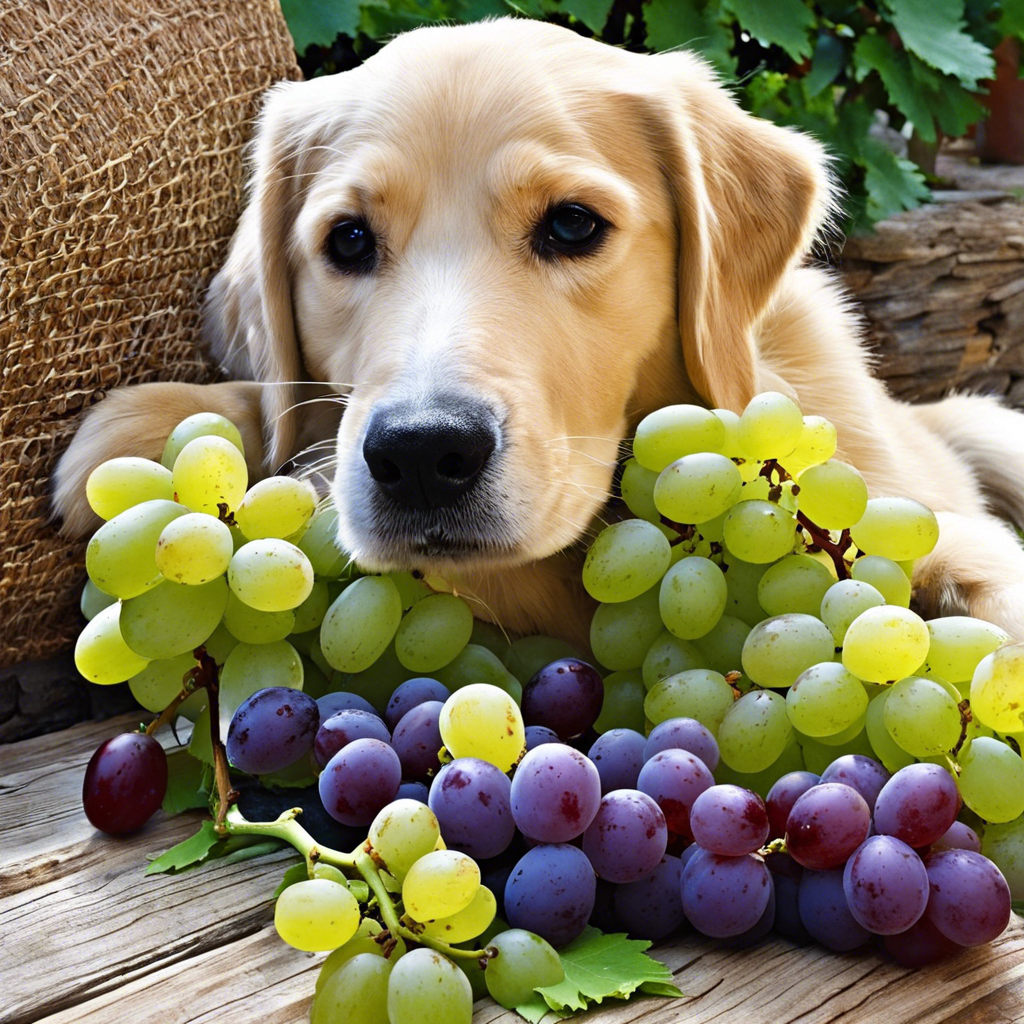Grapes and raisins are tiny treats, but they pack a dangerous punch for our canine companions. Many dog owners may not realize that these seemingly harmless fruits can lead to severe health issues and even be fatal for dogs. It’s a surprising fact that has left many pet parents scratching their heads, wondering why these common snacks could be so detrimental to their furry friends.
The exact reason why grapes and raisins are toxic to dogs remains a puzzle yet to be fully solved by veterinary science. Even small amounts of these fruits can cause acute kidney failure in dogs, and some dogs have been known to experience adverse effects after ingesting just a few grapes or raisins. The mystery deepens as not all dogs react to grapes and raisins, and there’s no way to predict which dogs will be susceptible. As a result, it is crucial to take swift action and seek veterinary advice if you suspect your dog has consumed any grapes or raisins.
So, what are the signs that your dog may have eaten grapes or raisins? Keep an eye out for symptoms such as vomiting, diarrhea, loss of appetite, and abdominal pain. In some cases, dogs may also become quiet and lethargic or show signs of dehydration, increased urination, and reduced water intake. These symptoms typically appear within 24 hours of ingestion, but they may occur sooner or later in some cases. If you notice any of these signs, especially after your dog has access to grapes or raisins, it’s essential to seek veterinary care immediately.
When you arrive at the veterinarian’s office, they will likely perform a series of tests and begin treatment immediately. The treatment for grape or raisin toxicity in dogs often includes inducing vomiting if the ingestion was recent, administering activated charcoal to prevent further absorption, and providing intravenous fluids to promote kidney function and urination, allowing the toxins to be eliminated from the body more rapidly.
It’s crucial to take preventive measures to ensure your dog’s safety and well-being. Keep all foods containing grapes and raisins out of your dog’s reach and be cautious when feeding your dog table scraps or human food, ensuring that they do not contain these fruits. Educating family members, especially children, about the dangers of feeding grapes and raisins to dogs is also essential.
In conclusion, the toxicity of grapes and raisins to dogs is a serious matter. While we may enjoy these fruits as a healthy snack, they can lead to life-threatening consequences for our four-legged friends. As responsible dog owners, it is our duty to ensure that our pets are kept safe from potential hazards, and in this case, that means keeping grapes and raisins well out of their reach.
Stay vigilant and remember that preventing your dog from accessing these fruits is much easier than dealing with the aftermath of ingestion. Your furry friend will thank you for keeping them safe and healthy!

